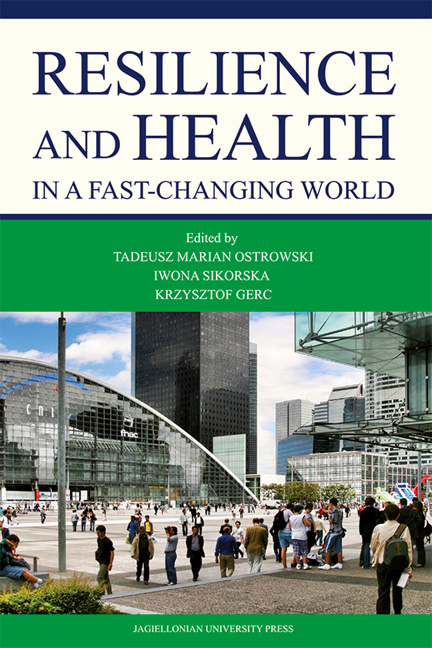Book contents
- Frontmatter
- Table of Contents
- Resilience from a Variety of Theoretical Perspectives: an Introduction
- I RESILIENCE IN THE PHILOSOPHICAL AND THE EXISTENTIAL CONTEXTS
- Resiliency and the Meaning of Life
- Building Resilience Today: How Can Ancient Stoicism Help
- Stoicism at War: from Epictetus and Marcus Aurelius to James Stockdale
- II SOCIAL CONTEXTS OF RESILIENCE
- III PROMOTING OF RESILIENCE AND ASSISTED RESILIENCE
- IV THREATS TO MENTAL HEALTH
- List of Authors
Resiliency and the Meaning of Life
from I - RESILIENCE IN THE PHILOSOPHICAL AND THE EXISTENTIAL CONTEXTS
Published online by Cambridge University Press: 12 January 2018
- Frontmatter
- Table of Contents
- Resilience from a Variety of Theoretical Perspectives: an Introduction
- I RESILIENCE IN THE PHILOSOPHICAL AND THE EXISTENTIAL CONTEXTS
- Resiliency and the Meaning of Life
- Building Resilience Today: How Can Ancient Stoicism Help
- Stoicism at War: from Epictetus and Marcus Aurelius to James Stockdale
- II SOCIAL CONTEXTS OF RESILIENCE
- III PROMOTING OF RESILIENCE AND ASSISTED RESILIENCE
- IV THREATS TO MENTAL HEALTH
- List of Authors
Summary
Abstract
The aim of the study was to replicate the activities necessary to verify the libertial-‑value-grounded theory of the meaning of life and to examine the question of the existential determinants of resiliency. The libertial-value-grounded theory propounds that the meaning of life is conditioned by the sense of personal freedom and individual sensitivity to values. The above three categories, namely the meaning of life, subjective freedom and axiological sensitivity, are treated as the hypothetical existential determinants of resiliency. The study was carried out on 42 women and 51 men, aged 22 to 79 years, by means of the following methods: the Ostrowski Attitude to Life Questionnaire, Ostrowski Personal Freedom Questionnaire, Ostrowski Sensitivity to Values Questionnaire and Ogińska-Bulik and Juczyński SPP-25 Resiliency Measurement Scale, the authors of which adhere to the understanding of resiliency as a disposition. The libertial-value-grounded theory of the meaning of life was positively verified, which demonstrated that the meaning of life is conditioned by subjective freedom and axiological sensitivity, in the path model which satisfactorily fits the empirical data (chi-squared (18) = 13.90; p = 0.74; RMR = 1.456; GFI = 0.93; AGFI = 0.86; RMSEA < 0.01). 46% of the meaning of life variance was explained. The hypothesis which claimed that resiliency is conditioned by the existential predictors examined in the study, the meaning of life and subjective freedom in particular, was verified, and relevant correlations were presented in the path model which satisfactorily fits the data (chi-squared (54) = 48.62; p = 0.71; RMR = 1.63; GFI = 0.86; AGFI = 0.76; RMSEA < 0.01). The resiliency component variance was explained by Persistence (18%), Coping Skills (60%), Openness (67%), Focus in Difficult Situations (67%) and Tolerance of Failure (81%). Further research is required to explore the sequentiality of the meaning-of-life predictors, the correlation between resiliency and sensitivity to values and the resiliency component variation according to gender.
Key words: resiliency, meaning of life, subjective freedom, sensitivity to values, motivation Theory
The question of the meaning of life is an inherent part of the studies on resiliency. Frankl (1984/1950) defined the meaning of life as a mechanism which protects the individual against mental disorders, noogenic neurosis and depression in particular.
- Type
- Chapter
- Information
- Resilience and Health in a Fast-changing World , pp. 19 - 32Publisher: Jagiellonian University PressPrint publication year: 2015

